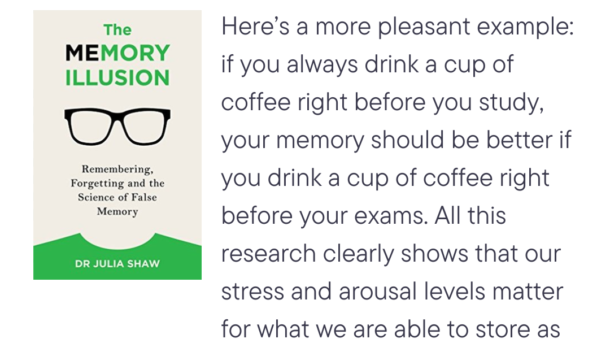In 1990, Shirley Pearce and her colleagues at University College London12 demonstrated this in two extremely interesting experiments. The first involved giving both chronic-pain patients and non-patients who were not suffering any pain a list of words to remember. They found that those who reported suffering chronic pain were much better at remembering words associated with pain than any other kinds of words. This is in line with the idea that ‘mood congruency’ matters; that we are better at encoding and retrieving information that fits with our mood. But this is not enough, as the exact state we are in can change, so Pearce and her team wanted to know whether a temporary state can also influence our memory. To do this they inflicted pain on some of their participants by asking them to submerge their hands in ice water, while others got pleasantly warm water. If you have never held your hand in ice water for any length of time, this is a surprisingly terrible experience. Right after this water bath experience, the participants were given a list of words to remember. They were then either given another painful ice-water bath, or were asked to put their hands in warm water, before being tested on their memory of the list. The researchers found that when participants experienced the same state at the time of learning as at recall, they performed significantly better. So those who experienced pain right before they learned the word list performed better if they experienced pain again right before they needed to recall the information. Similarly, those who experienced nice warm water before learning did better at the memory test if they had just placed their hands in warm water again. If we follow this through, it means that if we know we learned or experienced something during a particular type of arousal, by recreating that state we should be able to remember it better. Torturous ice-water baths not your thing? Here’s a more pleasant example: if you always drink a cup of coffee right before you study, your memory should be better if you drink a cup of coffee right before your exams. All this research clearly shows that our stress and arousal levels matter for what we are able to store as memories, and how we are able to retrieve them later on. So our memories can be affected not only by uncontrollable parts of our external environment, but also by largely uncontrollable elements of our internal environment.
Interesting anecdote and shows how much of our memory is affected by subconscious variables or external stimuli that we have no control over. Also, a good tip to create the same environment or stimuli when you study and then take your exams.



